U S.Inventors Continue Fight to Restore Patent Rights
September 16, 2021 marks the 10th anniversary of the America Invents Act (AIA) at the Decade of Stolen Dreams Inventor Rally organized by US Inventor, Inc., a non-profit association of inventors devoted to protecting the intellectual property of individuals and small companies. It represents its 13,000 inventor and small business members by promoting strong intellectual property rights and a predictable U.S. patent system through education, advocacy and reform.
There are six locations across the U.S. where inventors plan to make their voices heard about the consequences of the AIA and the Patent Trial and Appeal Board (PTAB) — Alexandria, VA • Burlington, VT • Dallas, TX • Denver, CO • Detroit, MI • San Jose, CA. Join US. Inventor Inc. on September 16th at a rally near you, and unite against the injustice of the America Invents Act and the PTAB.
The USI website states: “today, inventors are discouraged from pursuing research, development, and commercialization of inventions due to the implementation of the Patent Trial and Appeal Board (PTAB) under the America Invents Act of 2011 (AIA). Rather than helping small businesses as intended, the PTAB is often weaponized by large corporations to block competition from those who created superior technology. PTAB uncertainty, risk, and expense has become an overwhelming burden for entrepreneurs, stifling our ability to innovate and compete.
Having invalidated 84% of the 3,000 patents they have reviewed and destroyed the hopes and dreams of hundreds of inventors – the PTAB is still going strong. Even Chinese companies like Huawei, ZTE, HTC, and TikTok are regularly utilizing the PTAB to invalidate patents of U.S. inventors.”
For those new to the issue of inventors having lost the ability to stop large corporations from just taking valuable, patented technologies, here’s a quick rundown:
- Patent Trial and Appeal Board (PTAB): The America Invents Act of 2011 (AIA) created an easier way to invalidate (revoke) an issued patent. The PTAB is an administrative court with no jury and much less due process than a real court. Rather than a lifetime-appointed judge, a PTAB trial typically has three attorneys who are called Administrative Patent Judges (APJs).
- Injunctive Relief (the ability to stop an infringer after you have won your case): The U.S. Supreme Court decided that it was in the “public interest” for a proven infringer to continue infringing because it could serve the market better than a startup (Ebay, 2006). As a result, even if you win your case, you will have to pass a “public interest” test before an injunction can be issued to stop the infringer.
- Abstract Idea: The U.S. Supreme Court’s Alice decision (2014), put into law that an “abstract idea” cannot be patented, but did not define this term. The result is that a sharp attorney can often convince a judge, who may have little tech experience, that a patent should have not been issued.
Article I, § 8, Clause 8 of the Constitution grants Congress the enumerated power “To promote the progress of science and useful arts, by securing for limited times to authors and inventors the exclusive right to their respective writings and discoveries.” In my opinion, this makes the invalidating of patents by the PTAB unconstitutional.
A U.S. Patent is supposed to provide the inventor with the exclusive right to his or her invention. Inventors should be able to legally stop any infringer, no matter how large or powerful. They should be able to create a disruptive startup or license their invention at a market rate. This is what provided the incentive to invent that enabled America to lead the world in innovation for over 200 years. This is the right that US Inventor Inc. is fighting to restore.
Josh Malone, Policy Director for US Inventor, Inc. told me that in the 116th Congress (2019-2020) 35 representatives sponsored a bill to end the PTAB – H.R.4792 – Cyber Shield Act of 2019, but it was referred to the Subcommittee on Consumer Protection and Commerce and never got out of committee.
Also, on December 18, 2019, “H.R. 5478 – Inventor Rights Act was introduced by introduced by Representatives Danny K. Davis (D-IL) and Paul A. Gosar, D.D.S. (R-AZ), and on January 28, 2020, it was referred to the Subcommittee on Courts, Intellectual Property, and the Internet. This Act that would “restore patent protection for inventors and mitigate a generation of laws, regulations, and court decisions discouraging innovation by failing to secure to inventors the exclusive rights to their discoveries.”
The text of the Act stated “Recent changes to patent laws and procedures and Supreme Court decisions have adversely affected inventors such that the promise of Article 1, section 8 of the Constitution of ‘securing for limited times to inventors the exclusive right to their discoveries’ is no longer attainable.”
The Act stated that “Inventors are denied the fundamental right to ‘exclude others’ by the Supreme Court’s 2006 decision in eBay Inc. v. MercExchange, LLC.” Thus, inventors have lost their injunctive rights granted by the Constitution. It also states that “Inventors were stripped of the right to file suit in their own judicial district by the Supreme Court’s 2017 decision in TC Heartland LLC v. Kraft Foods Group Brands LLC.”
Unfortunately, H.R. 5478 also never got out of committee to be voted on by the House. US Inventors is working to have the Inventor Rights Act reintroduced in Congress this year.
On February 8, 2021, US Inventor, Inc. filed suit against the US Patent Office (USPTO) “to stop patent validity challenges at the Patent Trial and Appeal Board (PTAB) until the required, official rulemaking regarding the procedure has been done. The America Invents Act of 2011 (AIA) created an administrative court, the PTAB, for patent validity challenges. Prior to this, an inventor would defend his or her patent in a real court with a jury, lifetime-appointed judge, and a lot of due process. The PTAB has no jury, much less due process, and a panel of attorneys called Administrative Patent Judges (APJs) who have invalidated (revoked) 84% of the patents that have gone through the process. The AIA said that the USPTO Director “shall” involve stakeholders in notice and comment rulemaking that takes into account things like the economic impact of the law and its effect on the reputation of the Patent Office. After ten years, this rulemaking has still not been done, and US Inventor believes this is unlawful as well as unfair and very bad for American inventors and the future of American innovation. A number of inventors were present at the hearing in Marshall, TX on July 1st, 2021.”
US Inventor President, Randy Landreneau stated,
“Our patent system is supposed to enable patent-based startups to compete with entrenched interests. It did this pretty well for 200 years, and America’s leadership in worldwide innovation is the proof. But in recent years, our lawmakers and officials have listened to Big Tech rather than inventors and patent-based startups. The result is the loss of the ability to stop a large corporation from taking a significant, patented invention, which is why American innovation is declining, Big Tech faces little competition and China threatens to take the lead in future technologies. The purpose of this lawsuit was to make our voices heard through the rulemaking process that has been avoided for ten years. The judge decided that we don’t have standing and dismissed our suit. We are appealing, but regardless of the outcome of this suit, US Inventor will continue to fight on many fronts to restore the rights of inventors in America.”
For further information on the patent crisis, you may watch the trailer for the documentary Invalidated: The Shredding of the U.S. Patent System The full version is available on Amazon and iTunes.
You can help the efforts of US Inventors by signing the Inventor Rights Resolution “to restore patent protection for inventors and mitigate a generation of laws, regulations, and court decisions that have discouraged innovation by failing to secure to inventors the exclusive right to their discoveries.” ==> Click here to sign.


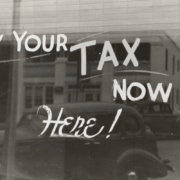
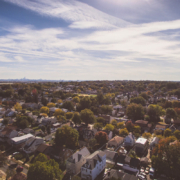
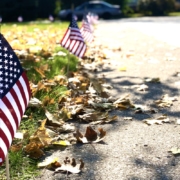
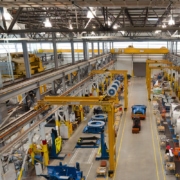
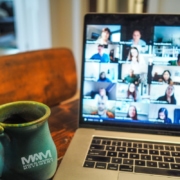



Wow I hadn’t heard about this. No wonder the Chinese are technologically ahead of us.
I am behind your movement. Made in America is the best & made with pride. Real Quality.
Anyway, unfortunately, fight is the only one way to get your rights.